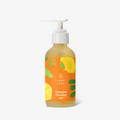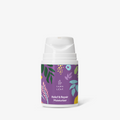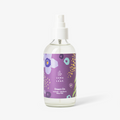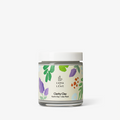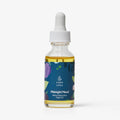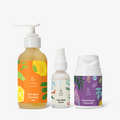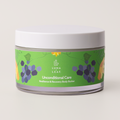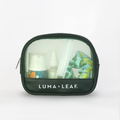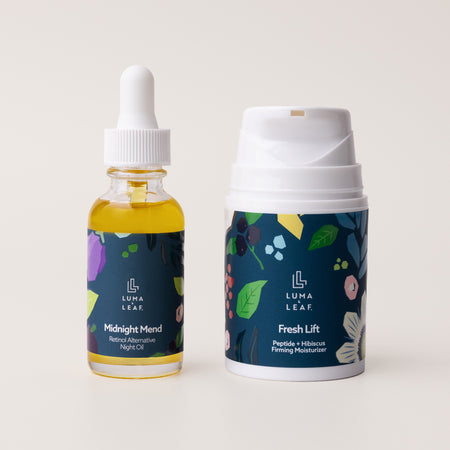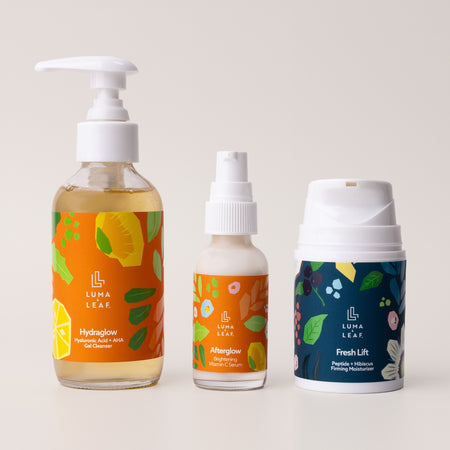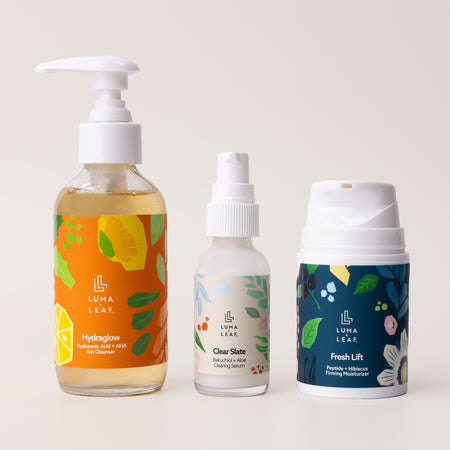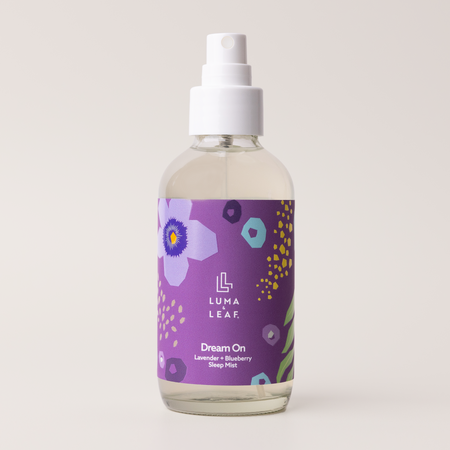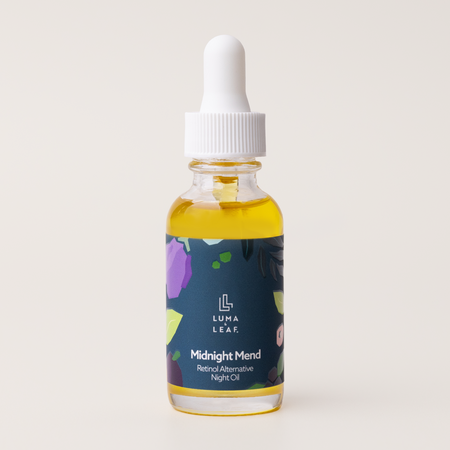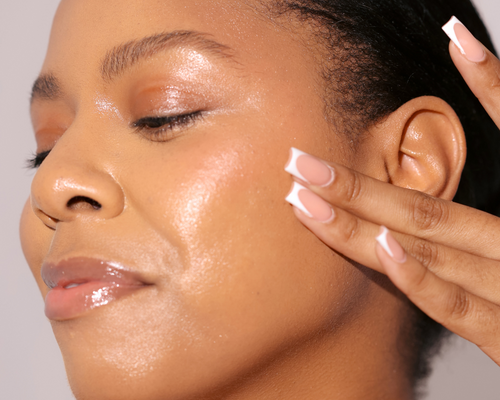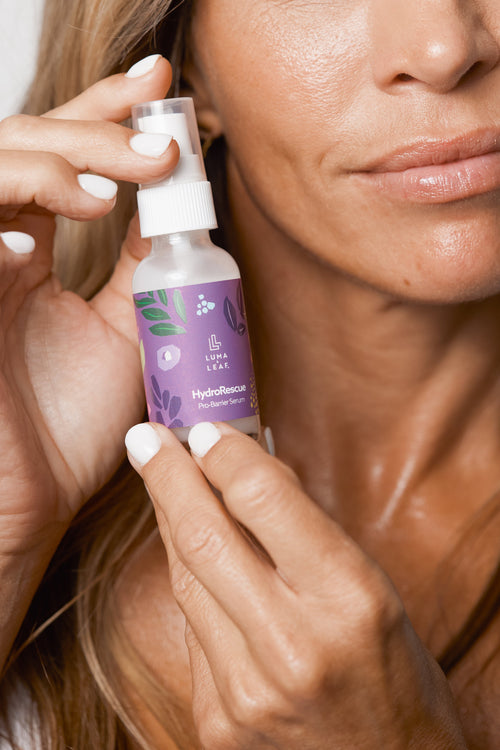
Just when you thought you were nailing the skincare table talk, the topic of oils vs serums comes up. You may argue that they’re the same consistency, have similar benefits, and are often marketed as interchangeable. And while you may be somewhat right about all of those things, the two serve different purposes and should be treated as such.
Don’t worry, we’re going to get into the differences so that you can confidently tackle this decision next time you’re choosing between the two (or just get both).
Understanding the Difference Between Oils vs Serums
Who doesn’t love an excuse to buy more skincare for their counterspace? Guilty. If you’re in the market for a good face oil, you’re most likely searching for a healthy treatment of nourishment and moisturization. Simply put, your skin is dry and you’re looking to keep it supple the natural way. Oil is the way to go.
Oils are essentially moisturizers that sit on the surface layer of your skin due to their larger molecules. These molecules replenish and restore your skin’s moisture barrier by working their magic on the outer layers.
Serums, on the other hand, are concentrated formulas designed to target a wide variety of specific skin concerns below the surface. There are many different ingredients in serums that work together to improve your skin’s health. These ingredients include antioxidants, anti-inflammatories, and vitamins.
Serums consist of much smaller molecules that are able to sink deep below your skin’s surface to treat concerns more directly. Because serums are more targeted, they tend to be more expensive than oils. However, no one said you can't get your hands on both so they can each serve their respective purposes.
When to use Oils vs Serums
When the wind is blowing and the temperature is dropping, it’s best to whip out a face oil to repair the skin’s barrier and retain its moisture. In order to achieve the most gorgeous glow, massage the oil into your skin as the last step in your routine to ensure all the fatty acids and vitamins are fully incorporated. However, this is not to say oils should be used in place of your moisturizer, but rather on top of it.
Because oils contain little to no water-based ingredients, the nature of their consistency is often slippery. And while oils sit and sink into skin differently, it’s best to experiment with this product prior to wearing it out in public. Oils tend to absorb slower, which can leave a little shine behind. Especially for our combo and oily skin types, you might find that this product is a better fit in your PM routine. We wouldn’t want the oils to mess with your makeup or start to feel heavy throughout the day.
If you’re someone who struggles with redness, acne, wrinkles, or hyperpigmentation, you’d benefit from adding a serum into your life. Serums are usually lightweight, water-based formulas that penetrate the skin’s surface with active ingredients to regenerate cells. They tend to be more absorbent, which is why it’s important to not mistake these for a final hydrating step. Use a serum after cleansing and toning, but before applying moisturizer
You should incorporate a serum into your everyday AM and PM skincare routine, depending on the purpose and actives in the formulation, of course. Always read your labels before diving in skin first!
How to use Both Oils & Serums
Both oils and serums have different skincare strengths, which is why they can be used in accordance with one another or on their own - depending on your #SkinGoals. Layering is always welcome in your routine to guarantee your skin is getting every bit of love it needs. Here’s a quick overview of the order in which you can implement both oils and serums:
- Cleanser
- Toner
- Serum
- Moisturizer
- Oil
- SPF
If you’re lucky, you may also stumble upon a hybrid of the two. Hybrid products are basically super-charged oils. They’ll give you the hydrating layer of moisture your skin desires, all while packing in the penetrating nutrients of a serum. We love a BOGO. Use a hybrid formula in place of separate serums and moisturizer as the final step in your routine.
Feeling inspired to take control of your skin health yet? Say goodbye to the oils vs serums debate, and hello to skin that shines from within.
